I recently read Venkat’s synopsis of the book Seeing like a state, which I followed up by an excellent blog post titled The Meridian of Her Greatness. Venkat challenged people to summarize the most important ideas from that post in a tweetstorm. He said if it gets more than 100 likes, on Twitter he’ll give away $1. I thought it was a fair deal, so here’s my attempt to distill some of the ideas into a visual essay.
1/ When humans wield their power in the world, they are limited by the linear nature of their thinking. The best example of this linearization is the top-down planning of modern suburbs. Contrast this with how nations and states emerged in a bottom-up fashion.
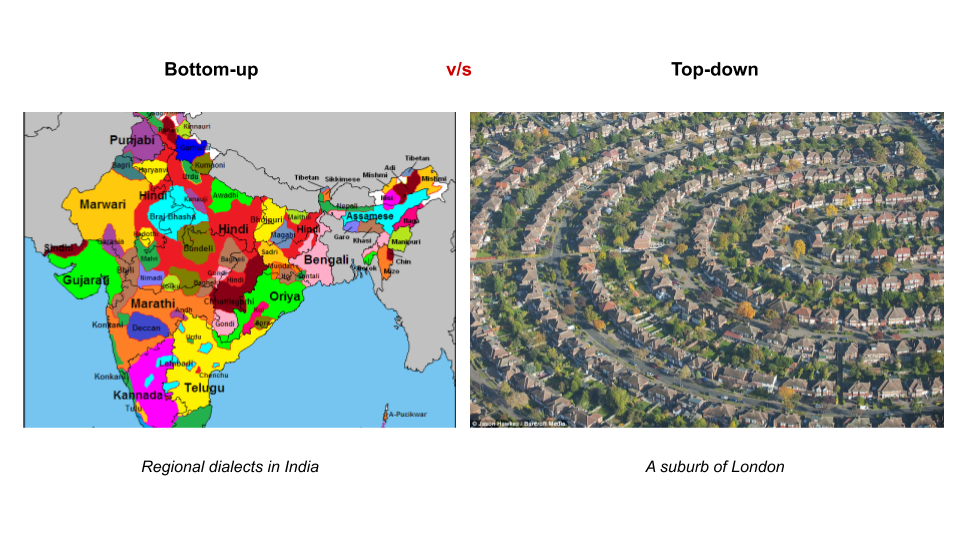
2/ This transformation of what looks like random, irregular structure into more orderly structure is because the human mind is incapable of grasping non-linear, complex interactions. We comprehend information linearly and hence our planning of the world around us is linear too.
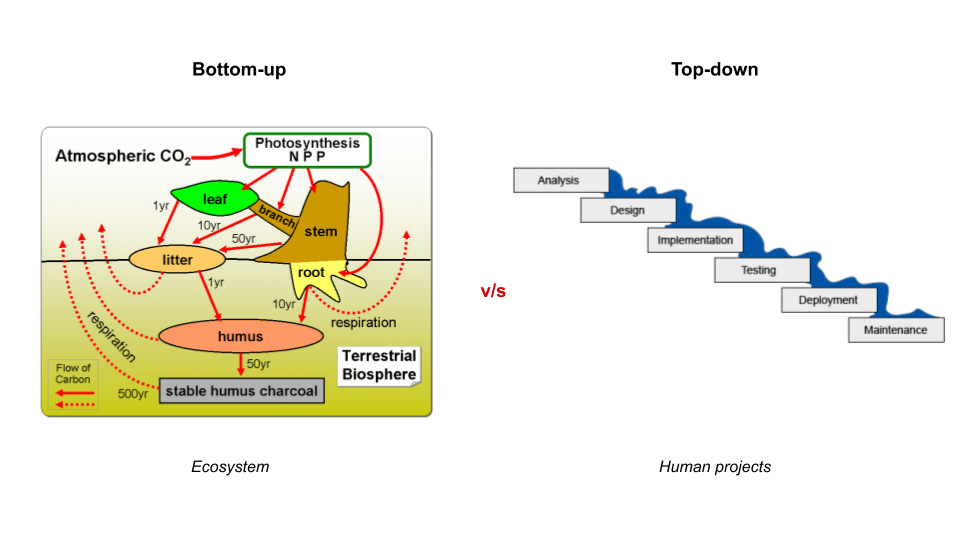
3/ This tendency of making sense of the world dooms apparently well-intentioned projects. When we plant a new forest to “save” our earth, we transform an earthly, fractal landscape into a two dimensional monoculture.
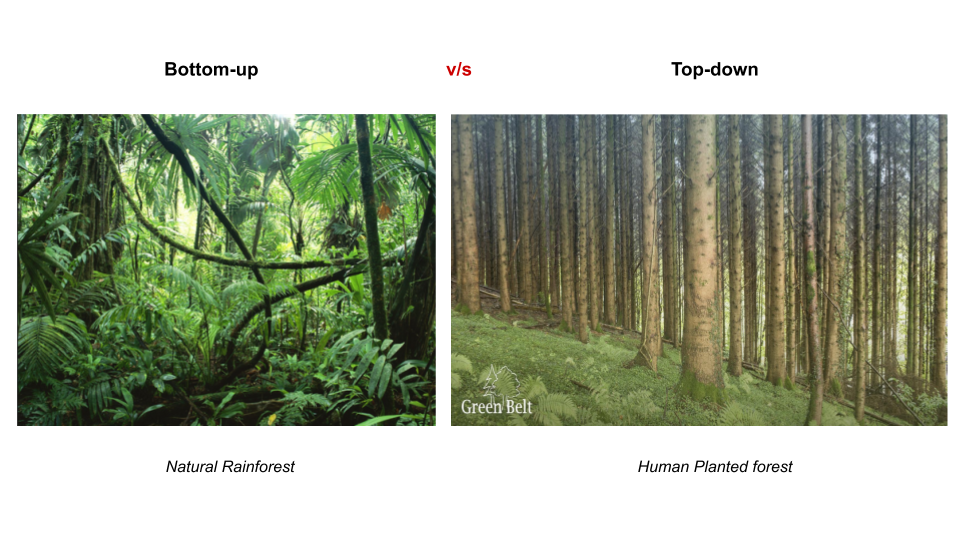
4/ Because our mind can only accommodate thinking in one dimension (time) or at best two dimensions (map), our designed objects ignore the messy intricacies of the real world. It’s apparent in all objects designed by humans, including the humble chair.

5/ It’s just not the biological or cultural dimensions that are fractal. Even our geological structures are fractal because they emerged from bottom up processes that interacted with each other in ways we can’t comprehend fully. This is why a perfect square is impossible to find in nature, but it’s commonplace in high school mathematics .
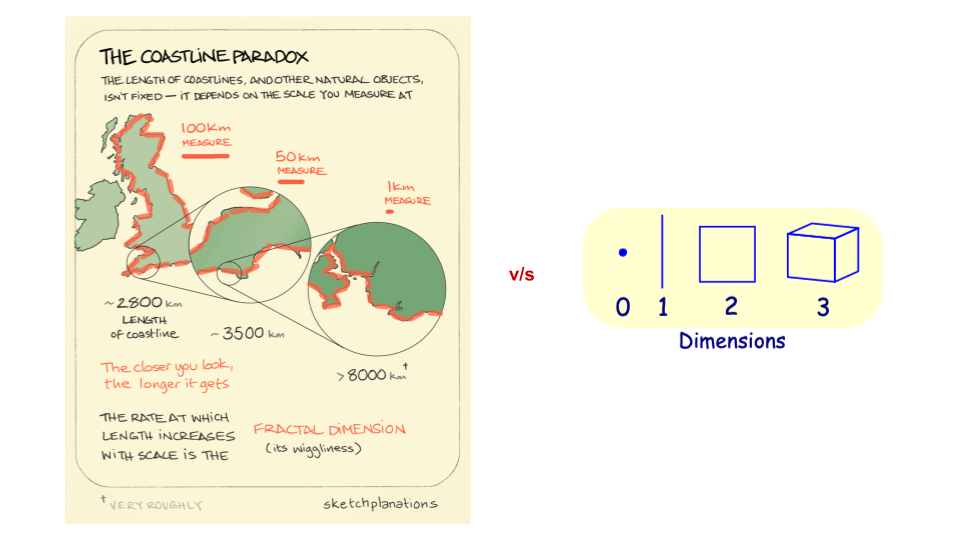
6/ Perhaps the biggest consequence of linearization of the world is replacement of the complex contexts that make life meaningful with a simple-minded focus on money. Governments push for GDP-per-capita growth because we can measure it, understand it and then optimize it.
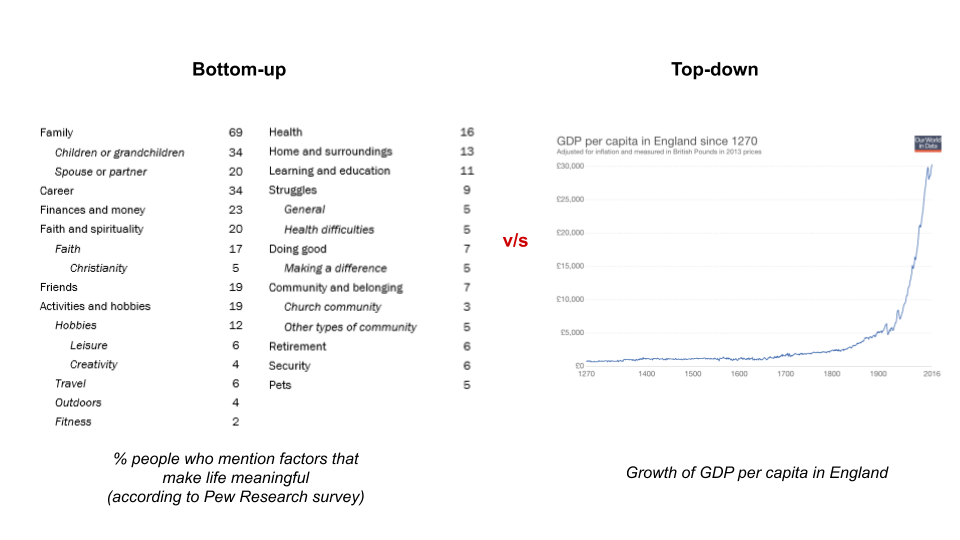
7/ Whenever can’t be optimized is as good as not being there because we can’t do anything about it. If philosophers can’t answer what makes the life meaningful, how can governments maximize it? Governments optimize what they understand and wellbeing, being a product of evolution, is a mix of factors is that cannot be intervened into in a top-down manner.
8/ A revolutionary idea is that governments should leave people alone so they could pursue their well-being in a bottom-up fashion via social interactions in their local area. In fact, that’s how the world was before the advent of nation-state.
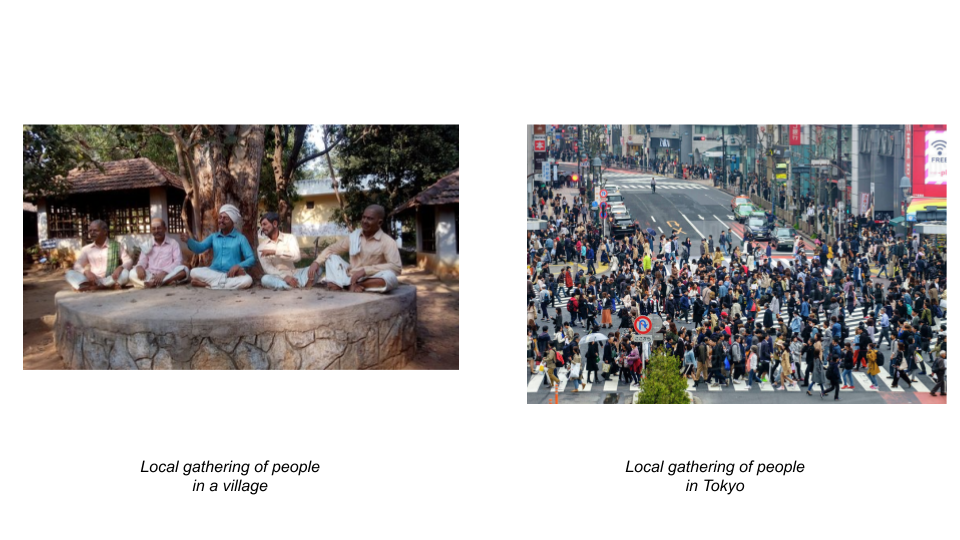
9/ Nation-state was inevitable because humans reasoned they could efficiently defend against enemies if they pooled their resources. Notice what got lost in this optimization of defense: the complex, local web of interactions that everybody was a part of, and yet nobody understood.
10/ Human ideas are necessarily few-dimensional while nature is branching and fractal. We do top-down thinking, from core essence to messy details while nature organizes bottom-up, from messy details to core essence.
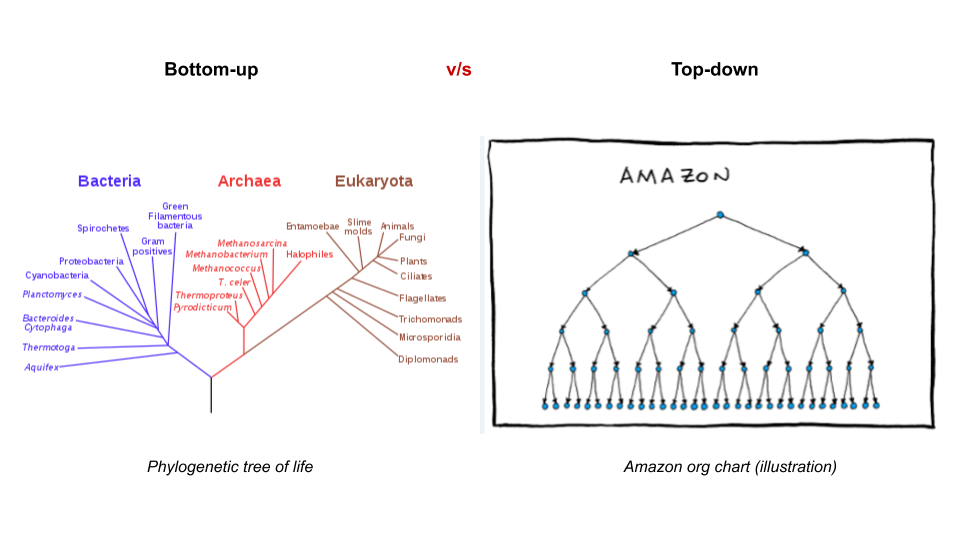
11/ Even our most sophisticated creation till date – the computer – isn’t immune to the limitation of what human mind is capable of conjuring v/s what nature regularly does without any foresight.
Perhaps nature is able to do it because it has no foresight.

12/ That’s all. Hope I did good.
If you like catchphrases, remember that:
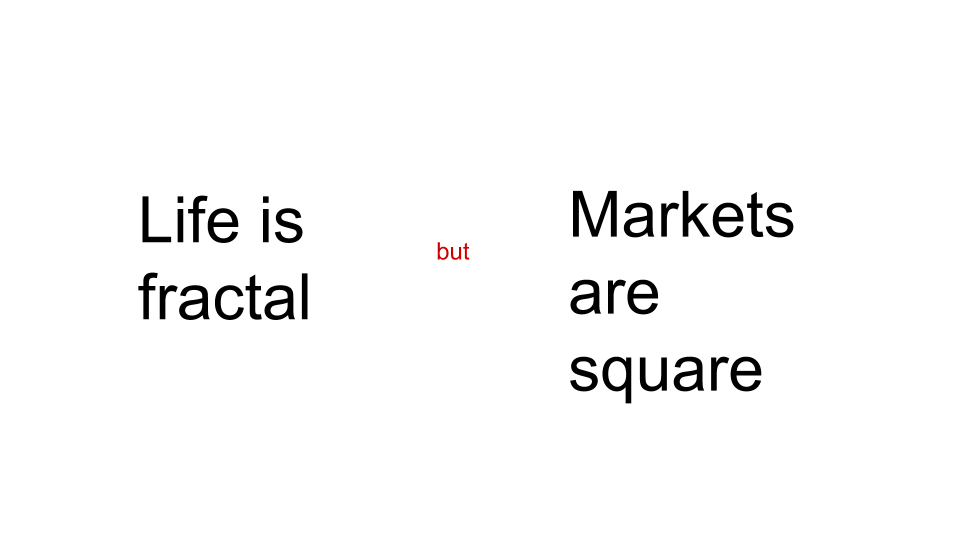
Follow @paraschopra